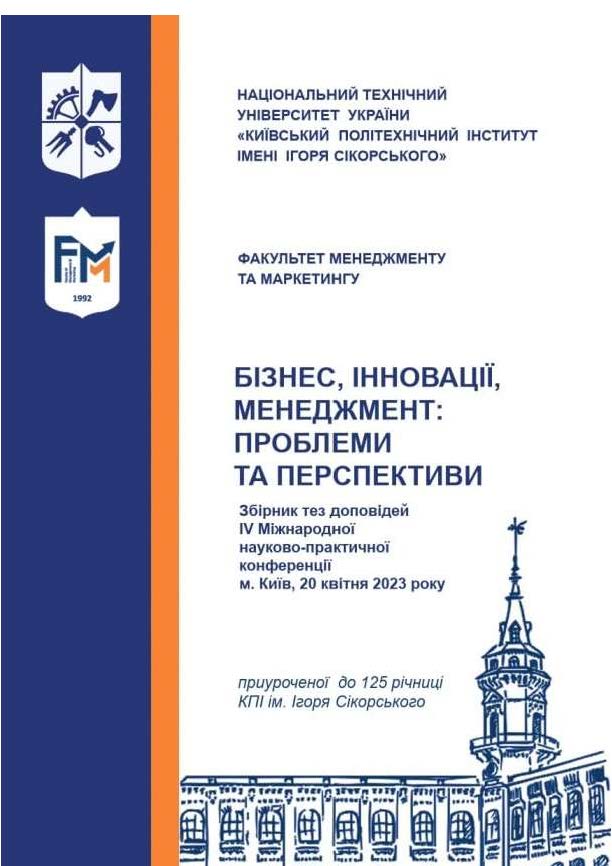ANTI-CRISIS COMMUNICATIONS UNDER MARTIAL LAW
Ключові слова:
ANTI-CRISIS COMMUNICATIONS, MARTIAL LAW, crisis communication planАнотація
In the conditions of martial law in the country, it is extremely important for companies to communicate correctly with their customers. Entrepreneurs have the mission of maintaining peace, maintaining a sense of stability and reliability in society. The system of anti-crisis communications during the war must be clear and structured, as it requires significant time costs.
A crisis is a complex period of actual or perceived loss caused by a sudden event or rapidly developing problem. A crisis can affect security, financial stability, reputation or general ability to do business, move freely within the country, etc. The main elements of the crisis in military conflicts are the threat of reputation; an element of surprise and a limited time to make a decision [1]. In such a period, all areas of enterprise management should not be left without an anti-crisis communications plan.
To choose the right anti-crisis strategy when building a communication process, it is necessary to determine the type of crisis. In the conditions of martial law in the country, it is appropriate to talk about the "Crisis of malicious behavior", which is caused by criminal or extremist actions on the part of certain groups that express hostility towards the company, the country or the economic system, possibly with the aim of destabilizing and destroying it [2].
Anti-crisis communications are essentially a set of communicative measures aimed at predicting, preventing, overcoming, as well as regulating the consequences of a crisis [3]. Communication during a crisis is one of the key tools of a business entity. The role of communications in crisis situations: 1) to make an impact for the fastest resolution of the crisis, 2) to protect the company's reputation; 3) reduce tension both within the company among employees and in relationships with consumers and customers; 4) demonstration of commitment to values; 5) quickly and constantly control the flow of information. During the war, anti-crisis communications at the enterprise perform a number of functions, first of all, it is the maintenance of a high level of cohesion, the formation of confidence in success in the middle of the enterprise; and from the outside - active, properly directed interaction with the public and interested parties, informing the mass media, business circles, consumers. Because the loss of the communication system, or the so-called "No Comment" position, often means hiding something that causes indignation and dissatisfaction [4].
In general, anti-crisis communication serves four purposes: informing citizens by providing reliable and timely information about the crisis; managing public opinion about the crisis and how politicians, parties or governments are responsible for it; limiting the duration or reducing the impact of the crisis, with clear instructions on what to do or how to help; restoring confidence and securing future prospects. To ensure these goals, an anti-crisis communication plan is necessary.
Therefore, an effective crisis communication plan is an important part of the crisis planning process.
As a rule, the anti-crisis program contains information on the principles of relations with the mass media, rules and typical mistakes when communicating with journalists, as well as samples of PR texts (press releases, internal documents, etc.), etc. The presence of a clearly formed anti-crisis plan of the communication process will ensure the operation of the enterprise in conditions of martial law with smaller losses.
Посилання
Seeger, M. W.; Sellnow, T. L.; Ulmer, R. R. Communication, organization and crisis. Communication Yearbook. 1998. № 21. Р. 231—275.
Lerbinger, O. The crisis manager: Facing risk and responsibility. Mahwah, NJ: Erlbaum.1997.
Coombs, W. T. Ongoing Crisis Communication: Planning, Managing, and Responding (2nd ed.). Thousand Oaks, CA: Sage. 2007. 4. План антикризового реагування. URL: https://msfz.ligazakon.ua/ua/magazine_article/FZ001833 (date of application: 02.04.2023)

